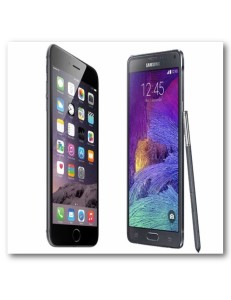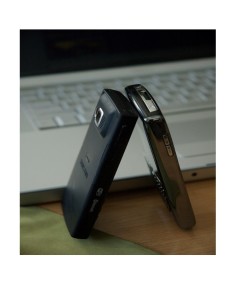By Chimdi Alagor
(Apple vs. Android: The Competition Continues!)
With the release of iOS 8, Apple users have gained a feature that Android users have enjoyed for years, which is the ability to choose a 3rd party keyboard. This feature, among others, signifies that Apple is slightly straying from its “walled garden” philosophy.
Traditionally, Apple controls all the core apps in iOS and does not allow its users to choose another 3rd party app as the default keyboard. This allows for a more integrated and consistent design in native apps but also prevents users from choosing a better alternative. In iOS 8, Apple users can now go to the app store and choose their own default keyboard app. Although this might not seem like much, this is the first time that Apple has slightly opened-up its walled garden to the possibility of default apps by 3rd party developers.
On the other hand, while iOS users are excited to finally have some app choice in their mobile devices, Android users have had this same flexibility since day one…and with much less restriction. For example, if I don’t like the HTC ( High Tech Computer) web browser, I can choose Firefox as my default, and anytime that I click a link, it will open in the Firefox app. Not only can regular apps be changed but also apps that completely change the aesthetics of your device. I personally do not like the way that the HTC home screen looks on my phone, so I downloaded the Google Experience Launcher which changes the look and function of my home screen and app drawer. If a possible alternative to an Android app exists, it can become the default, unlike in iOS, where you can use an alternative app, but the device will still only respond to the native app.
iOS 8 now has today extensions, widgets which operate in the home screen, and share extensions which allow users to share content to different online services and apps. With these extensions, an iOS 8 user can look at a page on Safari and send the page to the Evernote app, a note taking app, where it can be saved. Although it is great that iOS users can finally do this, Android users have had these same options since Android’s inception. While Apple is now allowing apps to communicate indirectly with extensions, Android allows apps to communicate directly and easily share any file type with another. Apps are also given deeper access to the phones’ systems, so instead of widgets only operating in the Notification Center, Android widgets can stay on your home screen and be used to control the app through a small window.
Although Apple is taking baby steps towards opening its operating system, it can still learn from Google’s Android operating system, which has fully exploited the benefits of openness since its creation.

